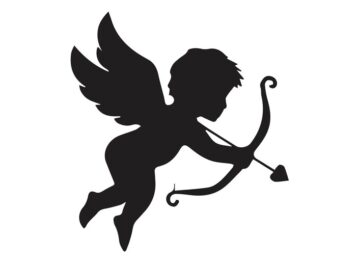Some 35 years ago as a student, I took part in a comic debate based on the above motion. Rather than a serious academic discussion, it was an opportunity for aspiring stand-ups to appear alongside celebrities in the pursuit of a laugh. I performed this debate alongside Hughie Green presenter of the ITV talent show ‘Opportunity Knocks’ and Brian Cant, the main star of the BBC children’s show ‘Play Away’. If you have never heard of them, trust me, I had really hit the big time.
As a pretentious 54 year old looking back on my pretentious 20 year old student self, I really nailed it that night. I pretended to have found the original draft of Karl Marx’s seminal work ‘Das Kapital’ in the university library, only to discover that rather than being a political treatise, it was in fact a romantic novel. I read out hilarious extracts about the protagonist Karl Heinz Edelweiss, who was locked in a love triangle for Maria with the evil factory owner, Herr Schmidt. Karl said hello to him as he entered the factory and Schmidt replied ‘Edelweiss, Edelweiss, every morning you greet me.’ I was that funny and of course lost the debate by some margin.
The motion was intended to examine the conflict between ideology and humour. Based on on a famous lyric from the songwriter Irving Berlin, (“The world would not be in such a snarl, had Marx been Groucho instead of Karl.”) it reflected a point in global history riven by the deadly destruction of both Fascism and Communism, desperately in need of the zany antics of the Marx Brotherstoprovide some vibrant light.
Marxism of the Karl variety still contributes to political fabric of our society, whilst theMarx Brothers films of the 1930s and 40s will sadly be unfamiliar to most people today. You probably have to be a student of comedy to appreciate the Vaudeville traditions that underpin their act and appreciate how subversive they were for their time.Their cultural impact was nevertheless wide-ranging.
Groucho Marx was famous for his wisecracking disregard for polite society. The son of Jewish immigrants on The Lower East Side in New York, he was born into a world of artisanal poverty. Perhaps that is why much of his persona was focussed on mocking the pomposity of the wealthy. Wearing tails, smoking a cigar below an enormous painted moustache, a recurrent theme in his films saw him flirting and insulting a ludicrous dowager widow character, played by Margaret Dumont. (Her: “Oh, I’m afraid after we’re married a while a beautiful young girl will come along and you’ll forget all about me.” Him: “Don’t be silly. I’ll write you twice a week.”) He was ridiculing the privilege from which he felt excluded.
Karl Marx was definitely less funny. “Workers of the World Unite: You have nothing to lose but your chains” are the famous opening words of the 1848 Communist Manifesto. They will have appeared on placards somewhere most probably this weekend as a new and hopefully successful revolution sweeps society. Ideology and principles are immutable and unsusceptible to changes in cultural sensibility.
Interestingly the FB1 built of a 200 page dossier on Groucho Marx being a Communist, reflecting America’s paranoia in the 1950s and 60s that artists and cultural icons were trying to dismantle the values of the country by prompting laughter or ridicule. Groucho was a Democrat with liberal sensibilities, but no links whatsoever to Communism. The FBI based their case pathetically on whispers and rumour. One TV viewer wrote to the bureau in 1960 ‘Last night on his program both my husband and I understood him to pronounce ‘The United States’ as ‘The United Snakes.’
So, Groucho and Karl perhaps did not therefore have that much in common other than a German surname and bad hair. But my debate of 1985 raises a valid question for us all as we slowly try to return to some form of corporate normality.
Principles of fairness, equality, diversity and the elimination of prejudice must impel us to a better world for all and workplaces based on opportunity not dissent. But we must also value the role of laughter in sustaining us through the process.
Unfortunately, we are all going to be incredibly challenged over the next couple of years . If growth (personal, professional or commercial) is restricted, we must find techniques to magnify our resilience. This in turn will make us more creative. In a study by Northwestern University, 84 participants – students, professional designers and improvisational comedians – took a cartoon caption humour test and a nominal product brainstorming test. The improvisational comedians generated 20 percent more ideas than professional product designers did, and the comedians produced ideas that were also rated 25 percent more creative.
Our sense of humour can vary wildly: for some a defence mechanism, for other a mode of attack. It can be used to mock, undermine and unsettle. But it also has the capacity to be kind, generate empathy, self-recognition, and flights of wonderful imagination.
Which brings me back to Groucho and Karl. Maybe there is some learning from their differences? Have strong principles and revel in the absurdity of their application. Believe in what’s right and make people smile when you tell them why.
I am trying to bring some of this humour into my workplace. Sadly, I operate in an office of two people with my wife of 29 years as my business partner. Not even a flicker of a smile for weeks now.
(Postscript: Here’s a link to perhaps the most famous Marx Brothers routine ‘The Sanity Clause’ from “A Night at the Opera” https://www.youtube.com/watch?v=G_Sy6oiJbEk I still think it is brilliant. )



